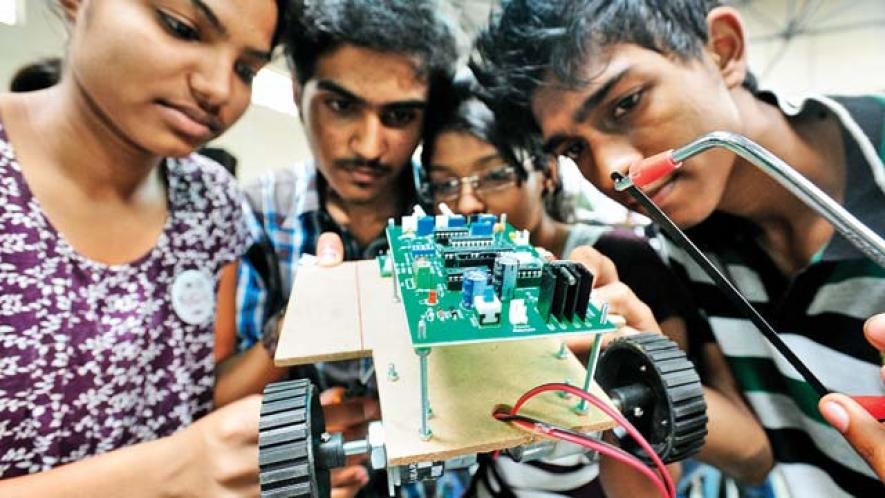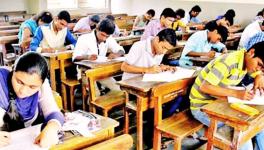Demand For Engineering Slowing Down? Vacancies Increasing, No. of Institutes And Student Enrolment Decreasing

Image Used For Representation Purpose Only
Minister of State for Human Resource Development (HRD), Satyapal Singh, responded to a question in the Lok Sabha regarding the increasing vacancy of seats in engineering colleges. The percentage of vacant seats in undergraduate courses in All India Council for Technical Education (AICTE) approved engineering colleges for the year 2018-19 is around 50 per cent. The vacancies have been rising, and as per the Ministry’s reply the trend is as follows:

The number of AICTE approved institutes offering undergraduate degrees in engineering and technology has decreased from 3,383 in 2013-14 to 3,123 in 2018-19. As reported by Newsclick in April 2018, the AICTE had received applications from a number of engineering colleges across the country seeking permission for closure – leading to a cut-down of 1.36 lakh seats. This included closure of 83 institutes (24,000 seats in total), 494 colleges (42,000 seats in total). Additionally, another 639 institutes had asked the AICTE to be allowed to reduce their intake by 62,000 seats collectively.
Also Read: After Fund Cuts, Science Research Heading Towards Increasing Commercialisation
“During the academic year 2018-19, the All India Council for Technical Education (AICTE) received 239 applications from Engineering and Technical institutes for closure. Out of these, 51 institutes were granted letter of approval for closure,” mentioned the reply in the Lok Sabha.
While mentioning the reasons for the rising vacancies, the ministry said that “the actual enrolment in technical institutes is based on demand-supply situation which is attributed to location of the institute, research and infrastructure facilities and placement opportunities.”
This market-oriented approach has dominated the engineering sector of higher education. When there was increasing or steady demand, the sector boomed and there was a proliferation of private and government colleges/institutes that offered engineering degrees, often inadequately regulated (as seen by the emergence of substandard and even fake institutes). But the trend since the past 4-5 years shows that the demand for engineering degrees is decreasing, in part due to the extremely low employability of those who actually graduate as engineers.
According to the All India Survey of Higher Education (AISHE) report for the year 2017-18, released in July 2018, there has been a decrease of 9.13 per cent in the student enrolment in B.Tech. and B.E. courses, from 43,36,149 in 2013-14 to 39,40,080 in 2017-18.
Also, it is widely known that the government has cut funds for research in science and technology, and besides a few “world-class” institutes, the infrastructure is generally inadequate, if not abysmal.
The 2017-18 batch of undergraduate engineering and technology students constituted 14.1 per cent (40.19 lakhs) of all students, out of which 71.4 per cent were male and 28.6 per cent were female. And, 8.73 lakh students completed their Undergraduate degrees in engineering and technology courses during 2017-18.
Get the latest reports & analysis with people's perspective on Protests, movements & deep analytical videos, discussions of the current affairs in your Telegram app. Subscribe to NewsClick's Telegram channel & get Real-Time updates on stories, as they get published on our website.
























